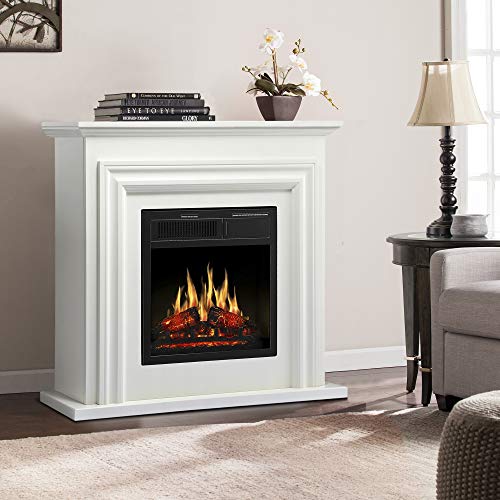fireplace-sale9599
fireplace-sale9599
14 Common Misconceptions About Outdoor Stoves Online

Best Value Fireplaces: An In-Depth Guide
The fireplace has actually long been considered the heart of a home, offering heat, atmosphere, and a centerpiece for celebrations. Nevertheless, navigating through numerous alternatives can be overwhelming, especially with budget plan restrictions in mind. This post provides a helpful guide on the best value fireplaces, detailing their types, functions, and advantages to help homeowners make a wise choice.
Types of Fireplaces
Fireplaces can be found in a variety of styles and types, each with different characteristics, expenses, and benefits. Here’s an in-depth look at the most common types of fireplaces readily available in the market today.
| Type of Fireplace | Description | Average Cost | Pros | Cons |
|---|---|---|---|---|
| Wood-Burning | Burn logs to develop heat and atmosphere. | ₤ 1,500 – ₤ 5,000 | Authentic experience, natural heat | Needs regular upkeep, less efficient |
| Gas Fireplaces | Uses gas or gas to produce heat. | ₤ 2,000 – ₤ 5,000 | Easy to use, cleaner than wood | Limited to gas supply, installation costs |
| Electric Fireplaces | Replicates flames with LED technology and produces heat through electricity. | ₤ 200 – ₤ 3,000 | Easy setup, installation versatility | Less authentic feel, greater operating expenses |
| Pellet Stoves | Usage compressed wood or biomass pellets, providing an environmentally friendly option. | ₤ 3,000 – ₤ 4,500 | Efficient, low emissions | Needs electrical power to run, requires storage for pellets |
| Ethanol Fireplaces | Burns ethanol fuel, producing flames that do not require a chimney. | ₤ 300 – ₤ 2,500 | No vents needed, portable | Greater fuel expense, safety concerns |
Factors to Consider When Choosing a Fireplace
Selecting the best fireplace is not almost visual appeals; it also includes practical factors to consider. Here are crucial elements to keep in mind:
1. Budget
- Figure out just how much you want to invest. Bear in mind that installation and upkeep costs can build up.
2. Area and Size
- Guarantee the fireplace fits well within the room, considering both the area offered and the heating requirements.
3. Fuel Type
- Choose on the fuel source based on schedule, cost, and the type of ambiance you wish to attain.
4. Efficiency
- Choose units with high-efficiency ratings to ensure you are getting the most value for your cash in terms of heat output.
5. Aesthetic Appeal
- Pick a design and design that matches existing design and boosts the total appeal of the area.
6. Regulations
- Understand regional regulations, permits, and building regulations that might affect your fireplace setup.
Top Best Value Fireplaces
Based on customer evaluations, specialist opinions, and total value for money, here are a few of the very best value fireplaces presently offered in the market:
1. DuraVent Pellet Stove
- Type: Pellet
- Typical Cost: ₤ 2,000
- Highlights: Highly efficient with low emissions, making it an exceptional option for environmentally-conscious property owners.
2. Napoleon B36NTR-1
- Type: Gas
- Average Cost: ₤ 2,500
- Emphasizes: This fireplace is visually attractive and highly efficient, with a smooth design and adjustable flame.
3. Duraflame Electric Heater Stove
- Type: Electric
- Average Cost: ₤ 200
- Emphasizes: Affordable and portable, best for smaller areas or adding atmosphere to a space without irreversible installation.
4. Genuine Flame Juliet Gel Fireplace
- Type: Ethanol
- Typical Cost: ₤ 300
- Emphasizes: An elegant alternative for modern areas that requires no venting, making it flexible and simple to set up.
5. Vogelzang VG5790
- Type: Wood-Burning
- Average Cost: ₤ 800
- Emphasizes: Offers a traditional wood-burning experience with a sleek modern design, ideal for those who cherish the classic atmosphere.
Often Asked Questions (FAQs)
Q1: What is the most cost-efficient fireplace choice?
A1: Electric fireplaces tend to be the most cost-efficient in terms of initial purchase price and installation, however can have greater operating expense compared to gas or pellet systems.
Q2: Are gas fireplaces safer than wood-burning fireplaces?
A2: Yes, gas fireplaces usually produce less emissions and position a lower risk of chimney fires as they do not produce creosote like wood-burning units.
Q3: Can I set up a fireplace myself?
A3: While some electric fireplaces permit simple self-installation, other types, specifically gas and wood-burning models, typically need expert installation due to venting and safety issues.
Q4: How do I keep my fireplace?
A4: Regular maintenance consists of cleaning the chimney (for wood-burning fireplaces), looking for gas leakages (in gas units), and guaranteeing correct ventilation for electric models.
Q5: Is an ethanol fireplace a good choice?
A5: Ethanol fireplaces are appealing for their modern style and ease of setup. Nevertheless, they can be less efficient and more expensive to operate long-lasting compared to other fuel types.
Choosing a value fireplace that fulfills your aesthetic choices and useful requirements involves extensive research and consideration. By understanding various types of fireplaces, their associated costs, and benefits, homeowners can make educated choices that will not only fit their spending plan but likewise boost the warm and inviting environment of their homes. Whether selecting an electric, gas, wood-burning, pellet, or ethanol model, the perfect fireplace waits for to change your home.



